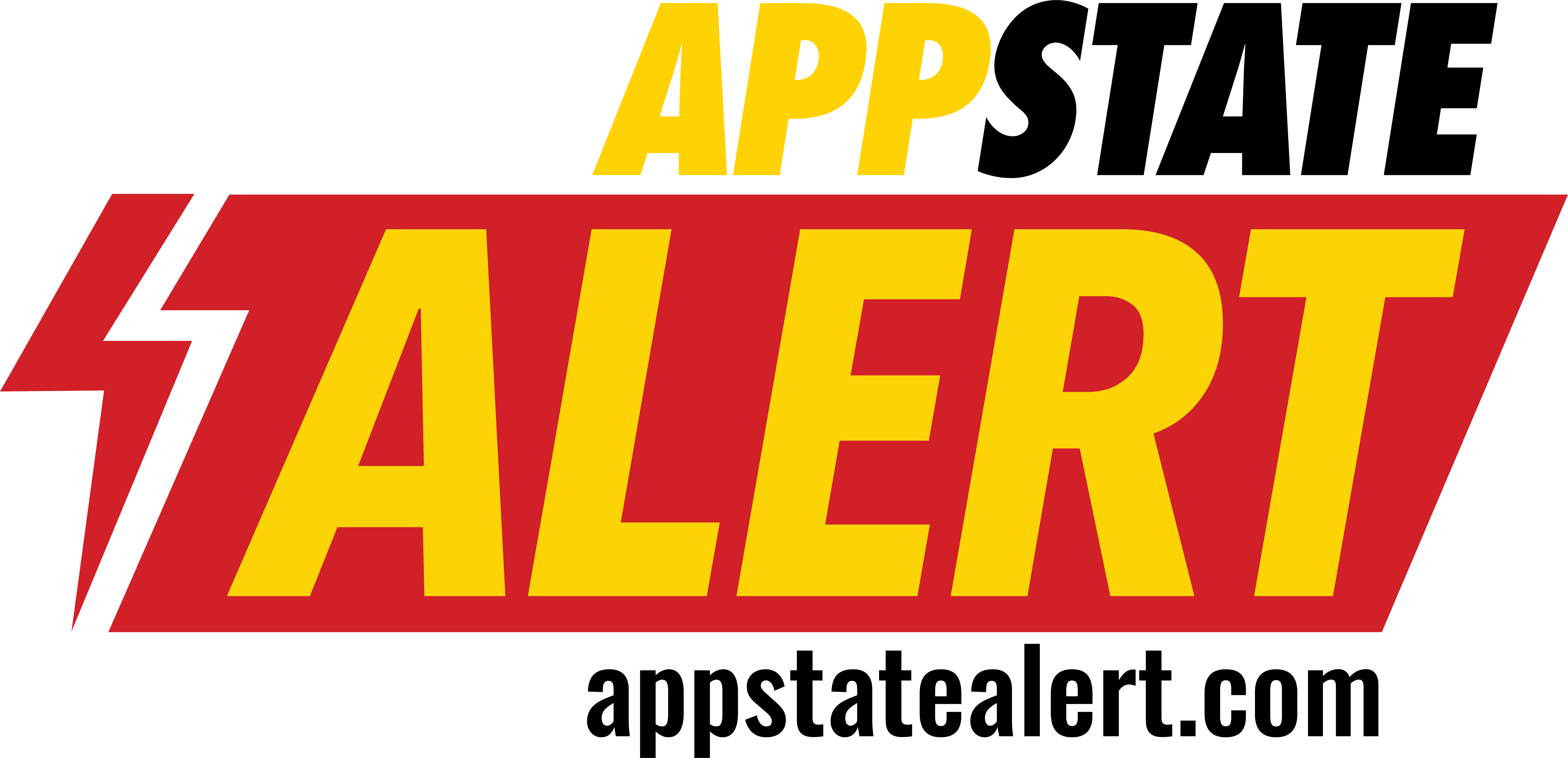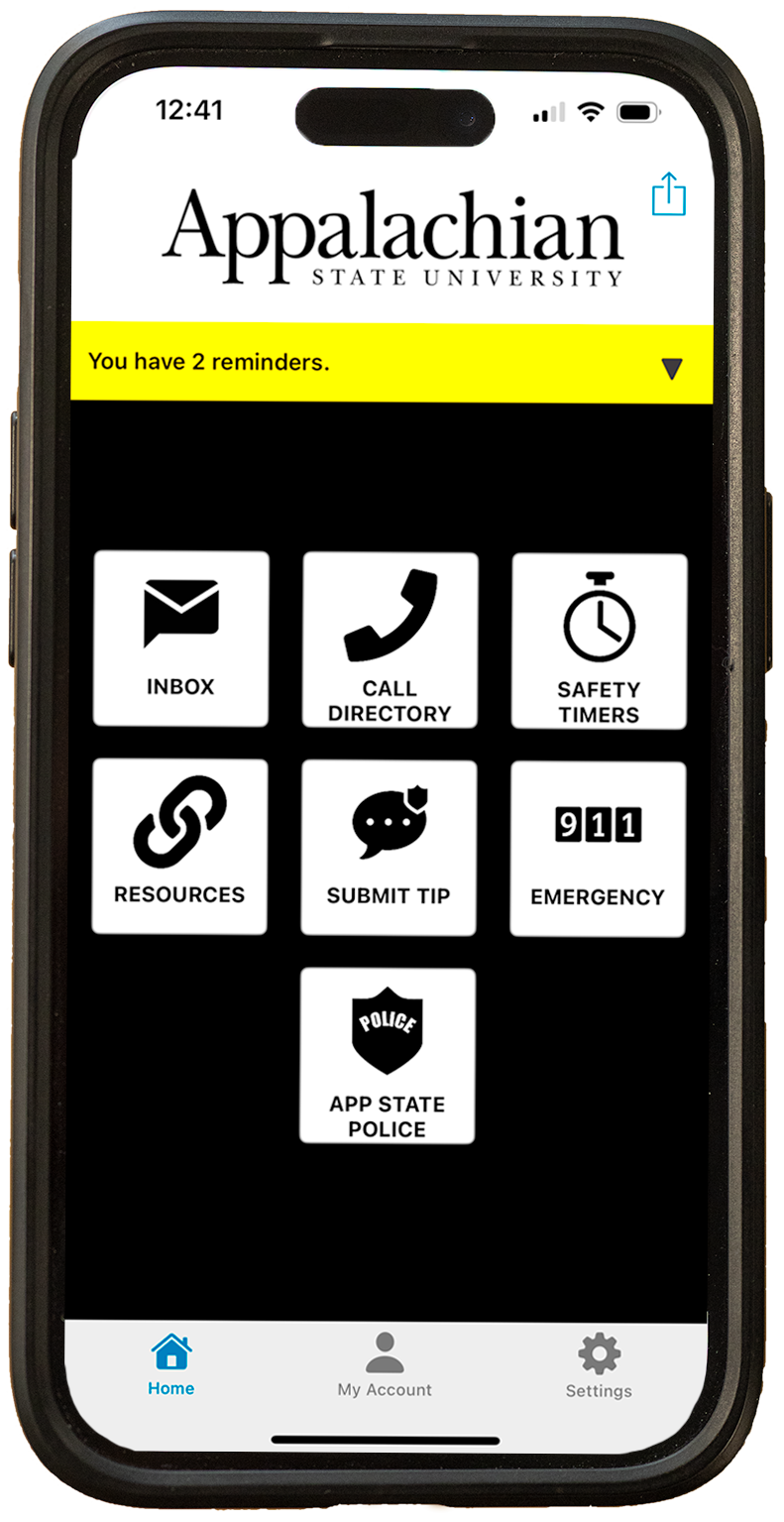Resources for Faculty and Staff
Concerned about the well-being or safety of someone in our campus community? App State has resources to help. What to Look For:
Distressed behavior
-
- Reluctant to acknowledge the apparent need for help
- Change in behavior and/or content of communication in the classroom*
- Significant changes in academic performance*
- Frequent tardiness and/or excessive absences*
- Withdrawal and/or avoidance from participation*
- Increased anxiety around exams or deadlines*
- Difficulty working/interacting with others*
- Prolonged or frequent sadness, crying, lethargy, irritability, rapid speech, preoccupation, increased or more intense disagreements
- Changes in physical well-being, e.g. swollen eyes from crying, increased illnesses, poor self-hygiene, rapid weight loss/gain or frequent sleeping in class
- Confusion or significant inability to concentrate
- Loss of motivation
- Excessive mood swings
- Drinking alcohol or and/or using drugs in ways that appear to interfere with basic functioning and well-being
- Repeated requests for special consideration, e.g., deadline extensions, changes in requirements, grade changes*
- Communication in oral, written or electronic formats that may suggest they may be thinking about self-harm
*denotes recommendation of the academic referral process
Disruptive Behavior
-
- Highly disruptive, explosive or disrespectful behavior to the living-learning environment (verbal hostility, aggression, disregard for classroom decorum and expected conduct, etc.)
- Hostility toward corrective feedback
- Inability to communicate clearly (garbled, pressured speech; disorganized, confused or rambling speech)
- Loss of contact with reality (seeing or hearing things others cannot see or hear; unsubstantiated beliefs or fears that others may be conspiring against them)
- Harassment/inappropriate communications (including threatening letters or electronic communications, such as phone calls, voicemails, emails, texts messages, social media posts etc.)
- Communication in oral, written or electronic formats that may suggest they may be thinking about self-harm or harming others
How to help distressed or disruptive students
-
- Deal directly with the behavior by providing corrective feedback and offer to help
- Consider having someone meet with you and the student if you have any concerns for personal safety or you believe you or the student would feel more comfortable with another person present
- Avoid offering confidentiality to the student, should they wish to talk
- Consider helping the student walk to Counseling and Psychological Services or the Office of the Dean of Students in case of an emergency
- Consider helping the student connect with Wellness and Prevention Services for any alcohol or drug-related concern or a dietary or nutritional concern
- Recommend the student seek assistance from Counseling and Psychological Services and/or the Office of the Dean of Students. Remind the student that campus counseling services are free and confidential
- Offer to help make initial contact with Counseling and Psychological Services and/or the Office of the Dean of Students
- If the student rejects referral, consult with Counseling and Psychological Services and/or the Office of the Dean of Students for assistance
- Normalize help-seeking as something everyone needs from time to time
- Inform and consult with your supervisor
Resources for Distressed or Disruptive Students
-
These offices work in collaboration to support our students:
- Office of the Dean of Students
- Case Management for Students
- Student Conduct
- Student Success
- Counseling & Psychological Services
- Wellness and Prevention Services
What will happen next:
-
- Please be assured every effort will be made to help students successfully navigate challenges. We encourage additional contacts with the referral offices should your concerns continue. It is important to note that referrals to these offices are not intended to substitute for faculty or staff conversations with students.
- Counseling does not impact or influence academic records
- Counseling sessions are confidential and free to students
- Assessment measures may lead to additional referrals, counseling or in some cases, police intervention
- The Family Educational Rights and Privacy Act (FERPA) applies to all student records, so unless the student chooses to share information with you, you will likely not learn the outcome of any assistance or intervention
Dangerous Behavior
(Safety is an immediate concern)-
- Verbal or physical threats to harm one’s self or others
- Communicates intent to attempt suicide, either verbally or in writing, and is not receptive to attempts to help
- Student expresses they feel they are in immediate danger due to threats of harm or actions by another individual
If you feel there is or could be immediate danger to yourself or others, seek immediate assistance
-
Emergency 911
App State Police, Emergency
Boone and Hickory Campuses 828-262-8000App State Police Boone
461 Rivers Street, Boone, NC 28608
(first floor, Rivers Street Parking Deck)App State Police Hickory
800 17th St. NW, Hickory, NC 28601
(first floor, next to Information Desk, office 1201)
Student Counseling
-
(Counseling & Psychological Services) 828-262-3180
After normal business hours, listen to the message and select the option to speak with a counselor Sexual or Sex-Based Misconduct
-
- Someone who has experienced sexual/sex-based misconduct or interpersonal violence may be trying to navigate next steps. All employees, including faculty, have an obligation to report such disclosures to the Office of Access and Opportunity: Equal Opportunity (EO) within 2 business days.
- Reporting is required to ensure that students are provided with appropriate resources, support, and resolution options. Individuals who receive by outreach from EO are provided resources and not required to engage.
- Reporting exceptions exist for confidential employees acting in an official confidential role, such as Counseling and Psychological Services, University Ombuds Office, Student Health Service, Wellness and Prevention Services, pastoral counselors and Student Legal Clinic.
Guide to Helping Students
- Call 911 or App State Police at 828-262-8000 (both campuses)
- Refer to:
- STUDENT CONDUCT: Disciplinary or academic dishonesty consultation and assistance, dean certifications, classroom presentations on academic integrity and consultation. Report alleged violations of the Code of Student Conduct, such as threats, cyberbullying, violence, or vandalism.
- APP STATE POLICE: Suspicious activity, after-hours help and crime reporting, including cyber crimes and cyberbullying.
- Call Student Health Service at 828-262-3100 (both campuses)
- Refer to:
- HEALTH SERVICES: Illness, testing for sexually transmitted infections and pregnancy, allergy injections, birth control information, and other health consultations and referrals.
- WELLNESS AND PREVENTION SERVICES: One-to-one health advisement, smoking cessation and nutrition consultation.
- Call Counseling & Psychological Services at 828-262-3180 (both campuses)
- Refer to:
- COUNSELING & PSYCHOLOGICAL SERVICES: Concerns with adjustments to college life, relationships, stress, depression, anxiety, family problems, alcohol or drug abuse, eating disorders, referral to community resources and online support program. Counseling and Psychological Services will present programs to classes or groups upon request.
- Call Disability Resources at 828-262-3056 (both campuses)
- Refer to:
- DISABILITY RESOURCES: Resources and accommodations, including consultation and referral, for students with disabilities, such as sensory, cognitive, or attentional disorders, mobility challenges, chronic health and mental health conditions.
Additional Resources for Students and Employees In Boone and Hickory
-
- Equal Opportunity
- Counseling for Faculty and Staff
- Disco Student Learning Center
- Mountaineer Food Hub & Free Store
- Office of Human Resources
- Student Affairs
- Student Veteran Services
- Student Legal Clinic
- University Housing (Boone only)
- University Ombuds Office
Making Referrals at App State
Campus Resources in Boone and Hickory
-
- Emergency
- 911
- on campus 828-262-8000
- App State Police
- Counseling and Psychological Services
- Counseling for Faculty and Staff
- Office of the Dean of Students
- Case Management
- Student Conduct
- Disability Resources
- Student Health Service
- Environmental Health, Safety and Emergency Management
- Equal Opportunity
- Wellness and Prevention Services
- Emergency
External Resources
- Daymark 24/7 Crisis Line
866-275-9552 - Hickory Mental Health Crisis Line: Catawba Valley Healthcare
828-695-2511 - OASIS: (Boone) Sexual Assault and Domestic Violence
24-Hour Crisis Line 828-262-5035 - Shelter Home of Caldwell County, serving Catawba County, domestic and sexual violence support: (Hickory) Main Office
828-758-0888 (call or text) - 24-hr Crisis Line:
828-758-7088 (call or text) - National Suicide and Crisis Lifeline
988 (talk or text) - National Sexual Assault Hotline
800-656-HOPE (4673) - Hickory Police Department 828-328-5551
- Catawba County Sheriff’s Office
828-464-5241 - Watauga County Sheriff’s Office
828-264-3761 - Boone Police Department
828-268-6900 Register for AppState-ALERTS
To learn more about these resources or your role as a responsible employee, please visit: eo.appstate.edu
Student Referral Steps
Aggression
Illness
Emotional Behavior
Disability or Accommodations
Other Resources
STUDENT SUCCESS: 828-262-8547
Academic referrals to share concerns related to estimated grade, participation/engagement level, attendance, and class presence.
studentsuccess.appstate.edu/student-referrals
CASE MANAGEMENT: 828-262-8284
Interpersonal and domestic violence, general student difficulties, concerned parents or family emergencies, situations that occur with App State students off campus, verifying illness or other absence-related concerns.
casemanagement.appstate.edu | deanofstudents.appstate.edu
Download the RAVE Guardian app
for emergency resources and to
submit anonymous safety tips
emergency.appstate.edu
Any person who has concerns about a student’s behavior may make a referral. The severity of the behavior will determine the action plans or response. Remember, working with students of concern is a collaborative effort.
AppState-ALERT is App State’s 24/7 emergency messaging system. Using a combination of text messaging, voice messaging and web technologies, AppState-ALERT is designed to provide students, employees and their families with timely information in the event of a campus emergency. Please follow the safety instructions provided in any AppState-ALERT message.
Students and employees can register for AppState-ALERTS through AppalNET to opt in to receive text messages and voice alerts. Alerts via desktop, email and web technologies are automatically sent to campus emails and campus-controlled technology, such as computers and digital signage.
Parents and families can register for text-only alerts by texting “appstatefamily” to 67283.
For more information, visit emergency.appstate.edu


